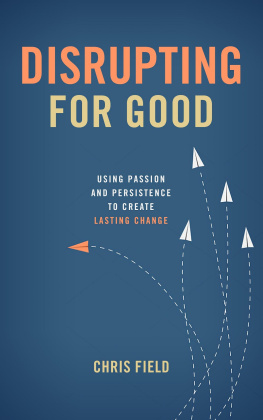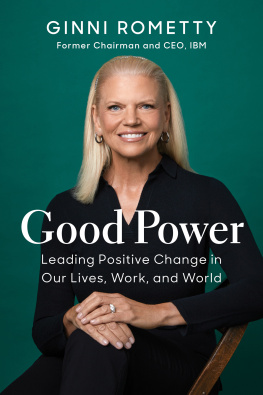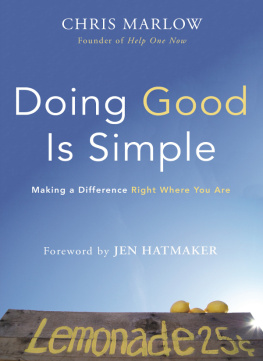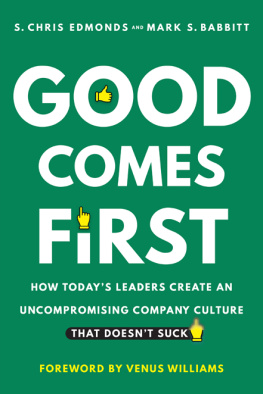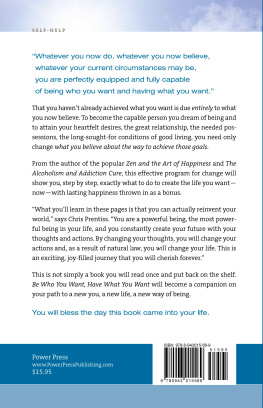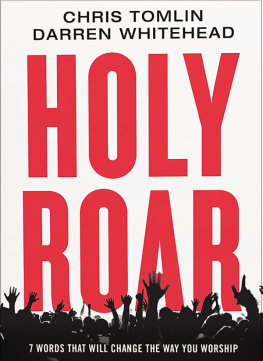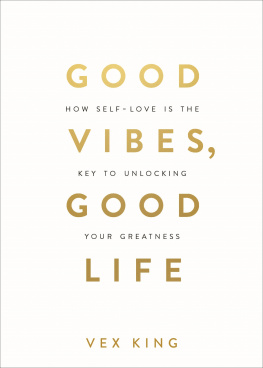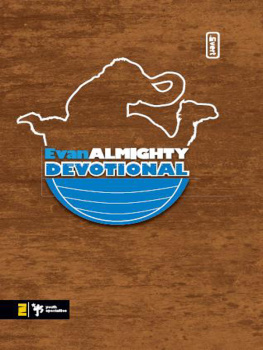I used to think my story of becoming a disruptor started when I ran for mayor of myhometown at age nineteen, but then I reconnected with my second-grade teacher onFacebook and was reminded of a story that took place long before my teenage mayoralcampaign.
Chris was his name also, and I met him on the first day of the second grade. It wasnot just his first day of second grade; it was also his first day in a new school.I knew Chris was different, though I did not really know how or why. What I didknow was that elementary school playgrounds, hallways, and cafeterias could be anunforgiving place for a boy with a developmental delay who was more rotund than hisclassmates and preferred the comfort of sweat suits over the cool fashions therest of us favored. I decided immediately that Chris and I would be friends, thatwe would stick together. For better or worse, the two Chrises were going to conquersecond grade as a team. One stroke of good luck was that Chris and I shared a teacher,an amazingly kind and generous woman named Mrs. Womack. She quickly picked up onwhat was happening and discreetly went out of her way to make sure Chris and I wereable to be together as often as possible. Here is what Mrs. Womack remembers aboutour special bond: You were wonderfully kind to Chris, always including him in activitiesand frequently sitting beside him. In fact, his mom told me she didnt believe howsweet the children were to him. I think he had a good year and certainly helped allof us realize that on the inside of our outsides we are all the same.
I want to be clear that I do not tell this story to make myself out to be some sortof hero (in fact, I labored over including it at all because I did not want it tocome across like that). There were countless other classmates I did not pursue andlove as well as I did Chris. That is what makes this story stand out in my mind.When it came to my relationship with Chris, I chose to disrupt. Even as a seven-year-old,I was uncomfortable with the truth of what life in our school might be like for Chrisif he did not have allies and friends to walk alongside him. So I chose to show up,I took action, and I stayed there until a new and better truth had been born. Thatnew and better truth was our learning that Chris was more like us than he was different,and we all loved to be around him. In the strange and unspoken hierarchy of elementaryschool, there are accepted norms for how kids like Chris usually get treated. Atworst, it is by way of bullying, taunting, and teasing. At best, it is often withindifference and exclusion. However, we dismantled those norms and forged a previouslyunimagined future. A future in which Chris was fully one of us: our classmate, ourpeer, and our friend. That is the heartbeat of disruption.
Fast-forward a few years to my freshman year of college. Plenty of disruption hadhappened between second grade and the end of high school, but it would be a stretchto call most of it disruption for good. However, when I was nineteen years old, Iearned my first front-page story in the local newspaper. The headline read somethinglike Local College Student to Run for Mayor. Here is how it all came to be: I wasreading the newspaper one morning when I noticed a story about the upcoming mayoralelection. The part that stood out to me the most was that the favorites to win thejob were both well over sixty years old. This was in a town of about sixty thousandpeople, with a very young population that included many young families as well astens of thousands of students from nearby Texas A&M University. Knowing this,I could not believe there were no younger candidates vying for the position. So Imarched down to city hall to see what I needed to do to sign up. The conversationwent something like this:
Me: Hi, I would like to sign up to run for mayor.
Secretary: Um, okay. Have you thought about starting with city council?
Me: I have not. Go big or go home, right?
Secretary: Uh, sure. Fill this out, and dont skip the part about your campaigntreasurer.
Two minutes later, I was officially a mayoral candidate. (My friend, Tristan, wasofficially a mayoral campaign treasurer, a bit of news that came as a surprise toboth of us.)
I did not win that election, but I did finish third out of five candidates. Mostimportantly, I learned the most valuable of lessons: just because it has never beendone before does not mean you should not do it.
I was uncomfortable with the truth of two retirement-age or older candidates beingthe favorites to win an election in a town full of young people, so I did somethingabout it. I showed up, I signed up, and I ran in that election to the best of myability. The accepted norm was that someone my age was not qualified to run for mayor.In fact, people told me they thought I was playing a big joke. Of course they did!I was forging an unimagined future that they could not yet fully comprehend. Theonly thing I could do was stick around until that new future was made clearand thatis exactly what I did.
When the same local newspaper printed its Election Day edition a few days beforethe election, I was terribly anxious to see what they would say about me. I had spentmore than an hour with the editorial board just a few weeks before, and I did notthink it went well. I sat at one end of the table while they peppered me with questionsabout the city, city government, politics, and the like. I was beat when I walkedout of the room, and I was sure they hated me. Imagine my surprise when I openedto their section on the mayoral campaign and read this: Field... is bright, articulate,and knowledgeable of how the council operates.... His youth and his vitality makehim a person who will be a force to reckon with in years to come.
That is the birth of a new truth. That is the discovery of an unimagined future.From the age of nineteen to today, I have been fortunate enough to do many cool andmeaningful things: I went to college, got a couple degrees, directed a summer campthat hosted thousands of inner-city kids, worked at a Boys and Girls Club, got ascholarship to law school, quit law school, ran a bunch of marathons and ultramarathons,taught myself to be an auctioneer, wrote a childrens book, organized and successfullyachieved four Guinness World Records, launched the Run for Boston 4/17 runningcampaign that went viral, started several businesses, founded the highest-rated marathonin the state of Texas, was asked to teach a business class at Texas A&M University,and have spoken to tens of thousands of people about pursuing their dreams and choosingto live with passion. And all of that is on the side. My full-time job over the lastseven years has been helping to bring freedom to more than one hundred enslavedchildren in Ghana, Africa. In almost every one of these instances I was doing somethingmy peers (and even those much older than I) were not doing. In almost every one ofthose instances one or a dozen people said I should not or could not achieve whatI set out to accomplish, but I kept making the conscious decision to dismantle acceptednorms and forge unimagined futures. I kept choosing to listen to my heart, whichnever failed in telling me when a current truth was simply too uncomfortable forme to continue on and ignore.
People who love you are often going to tell you hard things should not be attempted.They will say this because they are afraid to see you fail. They speak out of loveand concern, but that does not make them any less wrong. It just means you shouldbe kind when you respond to tell them you are going to go for it anyway. We willtalk more about this later in the book, but I want to go ahead and acknowledge itnow. It is very hard to believe we are disappointing people who care about us, butit is an inevitable part of the disruption cycle, because disruption at its coreis choosing (or creating) a path that most others have no interest in pursuing orare terrified to even consider. Butand please do not miss this

